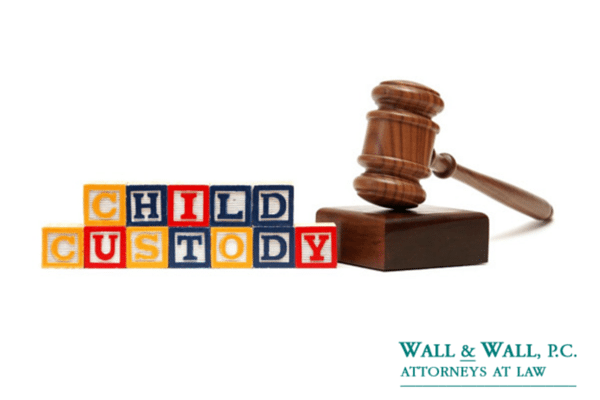Going through a child custody dispute in Utah? If so, then of course you’ll want to make sure you’ve got the best legal representation you can find. Furthermore, there are some terms and concepts you’ll want to become familiar with. Read on to explore child custody in Utah from “A” to “Z.”
Child Custody in Utah: A to Z
Adoption –
If you and your spouse adopted the child together, you are both considered legal parents. If one parent is biologically related to the child, the court may show favor to the biological parent. However, the court will ultimately do what they believe is in the best interest of the child.
Bench Warrant –
Anybody who is not complying with court orders is at risk for having a bench warrant issued; failure to pay child support may be a common reason. Be sure to continue child support payments, even if you’re currently going to court over the matter.
Child Custody –
There are 2 types of custody: physical and legal. Physical custody pertains to where the child(ren) resides. Legal Custody refers to the parent who has the legal right to make important decisions about the child(ren).
Divorce Decree –
This document is issued by the court and officially dissolves your marriage. In some cases, a divorce decree will also incorporate a child custody decree, which will explain the agreed-upon custody arrangement.
Entry by Agreement –
In some situations, a divorcing couple will not have any disputes to make regarding the divorce or child custody/support arrangements. When this occurs, there is really no need for the courts to get involved and an agreed entry of divorce may be obtained.
Father’s Rights –
Unfortunately, many courts seem to overlook father’s rights when it comes to child custody agreements; in many cases, custody is granted to the mother, except in circumstances where it can be proven that the mother is an unfit parent.
Guardian –
A guardian is a person other than the child’s parents who is granted custody of the child. A guardian could be another family member or even a close friend of the family.
Hearsay –
Essentially, it refers to any information that was obtained without a direct source. The witness doesn’t have any evidence or knowledge that the information is true, but merely heard it from another party. Hearsay is very weak as a form of testimony, especially in child custody situations.
Income Withholding Order –
When a parent fails to make court-mandated child support payments to the parent who has custody of the child, an Income Withholding Order (IWO) may be issued by the court. When this happens, the parent who hasn’t been making payments has his or her wages garnished by his or her employer.
Jurisdiction –
This term refers to the legal power to make a decision. In a child custody case, courts in a child’s home state typically have the jurisdiction to make these decisions. A child’s home state is usually the state in which he or she has lived during the past six months.
Kidnapping –
Also commonly referred to as “parental kidnapping,” this refers to an act where one parent takes a child (or children) to a place where the other parent is unlikely to be able to find them. Cases of parental kidnapping are taken very seriously in court.
Lawyer –
In a child custody or child support dispute, a divorce lawyer will be needed to assist each party with the legal process. This may include filing paperwork, making court appearances, and presenting evidence in front of a judge.
Mediation –
When two divorcing people cannot come to an agreement (whether it be about the division of assets, child custody, or child support), mediation may be necessary. This is a process that involves bringing in a neutral third-party with the intentions of helping the other parties reach an agreement.
No Fault –
Many states these days are “no-fault” divorce states. Utah is one of them. In a no-fault divorce state, there is no requirement to show wrongdoing by either party in the divorce when the official decree is issued.
Office of Recovery Services (ORS) –
The Office of Recovery Services (ORS) in Utah is a part of the Utah Department of Human Services that aims to ensure that divorced parents provide the support their children need. If your spouse is behind on child support payments in Utah, the ORS is the place to contact.
Parental Alienation –
This refers to situations where one parent attempts to implant negative thoughts or beliefs about the other parent in his or her head. This may be done by making derogatory comments about the parent in a child’s presence or even attempting to prevent the child and parent from having a relationship.
Quash –
This term essentially means to make something null and void, or as if it never happened. In some cases, a spouse’s petition to divorce or petition for child custody may be quashed in the state of Utah. However, it typically requires the assistance of an experienced divorce attorney to make this happen.
Retroactive Child Support –
This refers to any money that was paid by one spouse to support a child prior to the time when the official child support decree was made by the court. If the spouse paid more than was necessary, he or she may receive a credit; if he or she didn’t pay enough, then back child support may be owed.
Serve –
When you file for divorce in the state of Utah, you must serve your spouse the official divorce papers before any legal proceedings can occur. There are many ways in which this can be done, such as by mail or by posting in the newspaper.
Temporary Order –
A temporary order from the court can be issued before everything is finalized as a means of providing a spouse with needed financial support in the meantime, preventing a spouse from selling assets, or establish a temporary child custody arrangement.
Unlawful –
This refers to any action that is not conforming to or in accordance with the state’s laws. For example, parental kidnapping is unlawful in the state of Utah and punishable by the court system.
Visitation –
In most cases, the parent who doesn’t receive primary custody of a child following a divorce will still be allowed visitation of the child. In some cases, the visitation may be supervised (such as situations where the parent has a criminal record or has been seen as an unfit parent by the courts).
Ward of the Court –
This refers to a person (in most child custody cases, a minor child) who is protected by the court. Specifically, the court may assign a guardian to a ward of the court in situations where the child is deemed unsafe to live with either of his or her parents.
X –
In situations where a person is unable to give a signature (whether they’re illiterate or suffer from a medical condition that renders them unable to write), an “X” may be an accepted substitute for his or her signature.
Your Honor –
This is the best and most formal way to address a judge in court. A judge should be addressed as “Your Honor” any time you are spoken to, whether it be to answer a question or make a statement.
Zealous Witness –
This refers to a person who has a clear bias towards one side of a legal situation. In a child custody or divorce situation, a zealous witness may volunteer to be called to the stand first to offer advantageous information to one party. Zealous witnesses are typically not seen as very credible sources in the Utah court system, and it is not difficult for any experienced judge to recognize a zealous witness when he or she takes the stand.
Now that you have a better understanding of the Utah court system and child custody terminology, the best thing you can do for yourself is to hire a dedicated and experienced divorce lawyer which you will always find at Wall and Wall Attorneys at Law PC. We will assist you with every aspect of your Utah child support case and defend your rights along the way. Specifically, if you’re a father seeking help with a child custody case, be sure to turn to the professionals at Wall & Wall.
- Championing Fathers’ Rights with Utah Family Law Attorneys – April 1, 2024
- The Importance of Mediation in Family Law Matters – March 22, 2024
- Family Law Attorney Utah: Your Companion in Navigating Child Support During Tax Season – February 7, 2024




